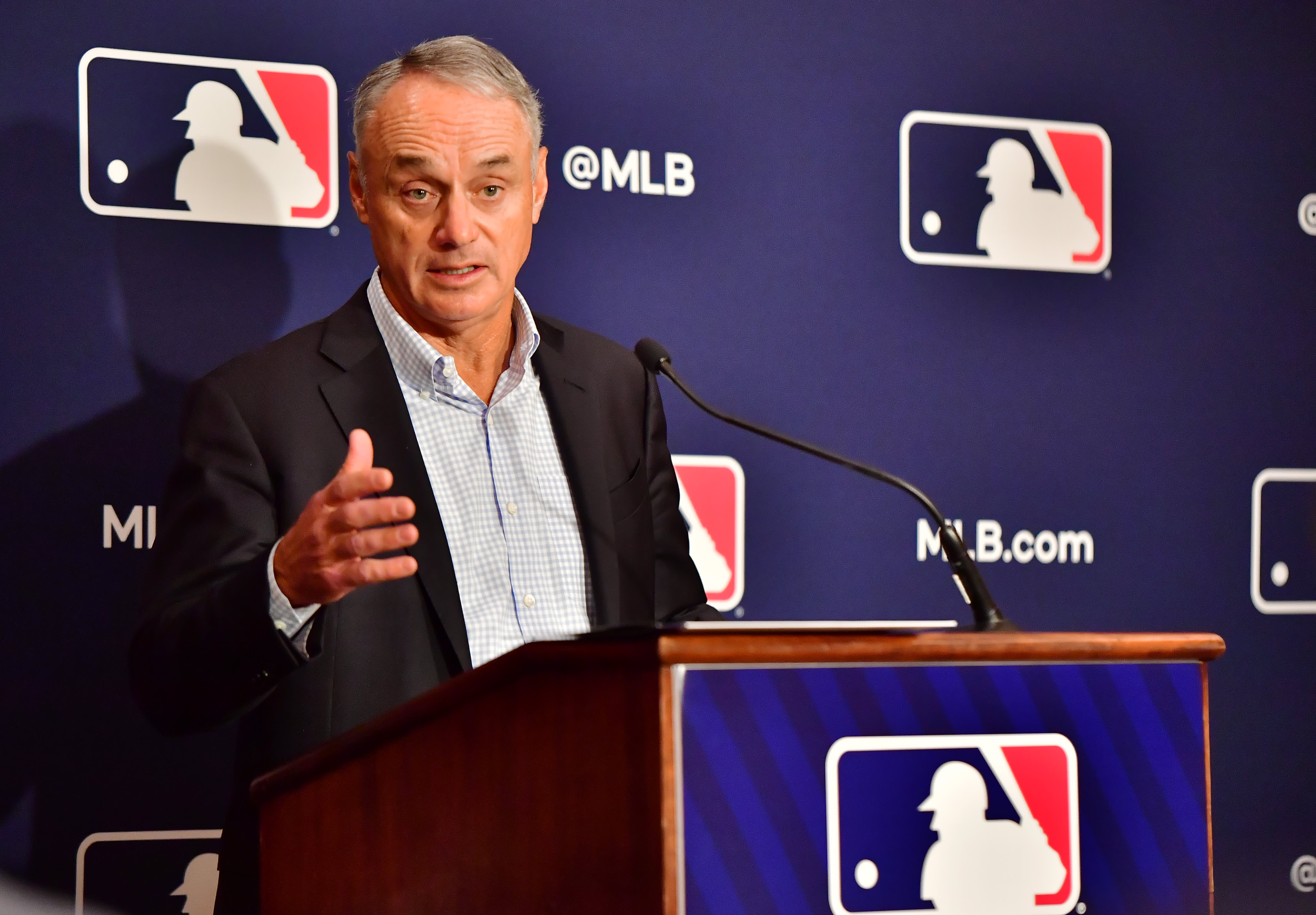Major League Baseball and the sport’s players union on Thursday reached a tentative labor deal that would pave the way for spring training games to begin and Opening Day to take place in early April.
A person familiar with the matter told CNBC that the agreement is subject to ratification. Twenty-three of MLB’s 30 owners must approve the deal. The players association’s executive committee and player representatives voted to OK the agreement.
The breakthrough came 99 days into the owner-imposed lockout of players after the sides failed to reach a new collective bargaining agreement. Spring training had been canceled.
The season had originally been set to start March 31. Owners canceled the start of the season last week after they couldn’t reach a deal with players by a league-imposed deadline.
Now the season is set to begin April 7, according to ESPN, which first reported the agreement. The season would be extended three days, and the schedule would include multiple doubleheaders to make up for potential lost games.
The sports news network reported that players can start to report to spring training as early as Friday. Spring training games could start as soon as March 18.
Wednesday night, MLB owners had said they would cancel more games and push Opening Day until April 14, absent a deal.
Among the sticking points were how far to expand the number of teams participating in the playoffs. The new format will include 12 teams in the postseason, up from 10. The National League will also adopt the designated hitter role, which means that pitchers will no longer have to hit in that league’s games.
In addition, MLB’s minimum salary will start at $700,000 and increase $20,000 per year over the life of the five-year agreement. MLB’s luxury tax line will also start at $230 million and increase to $244 million in the fifth year of the new pact. In the last CBA, the tax line was $210 million.
The sides also agreed on a $50 million bonus pool for prearbitration players who meet the statistical criteria. In its proposal last week, MLB offered $30 million.
And on the gameplay front, a pitcher’s clock and limiting defensive shifts will be added starting in 2023. The changes could help improve game action and cut down on duration.
MLB also secured another revenue stream as jerseys ads are now allowed via the new agreement. The uniform sponsorships are estimated to be worth $11 million per MLB team, according to measurement company Nielsen. Because players would wear the patches, MLB needed to negotiate permission.
The National Basketball Association, Major League Soccer and the National Hockey League already feature patch ads on jerseys.
Free agency and player signings are set to resume later Thursday after the agreement is finalized.
MLB owners had been getting the lion’s share of the blame for the lockout.
A study released by research firm Morning Consult said 45% of fans blamed MLB owners for failure to reach a new agreement. That’s up from 33% who blamed owners for the dispute around the shortened 2020 season. Twenty-one percent blamed the players.
Following the Dec. 2 lockout, Labor talks persisted throughout February and at times were tense — with one bargaining session lasting only 15 minutes. The lack of progress forced MLB to cancel spring training games scheduled to start on Feb. 26. MLB then delayed Opening Day.
The lockout marked MLB’s ninth work stoppage in its history and the first in 27 years.
